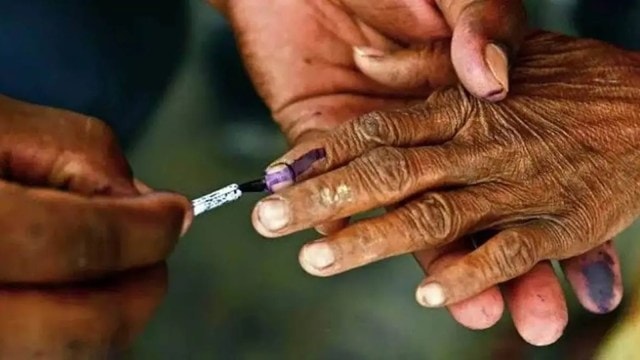
The results of the elections in Haryana and the Union Territory of Jammu and Kashmir have deservedly invited national attention. The mandates have demonstrated the complexities of democratic politics and underscored the difference between perception and reality. This is certainly true of the Haryana election about which the general perception, shared by this writer, was that the Congress would reclaim power in the state. However, the results have vindicated the power of the people’s collective in scripting their destiny and affirmed the resilience of the democratic spirit and the nation’s unswerving commitment to the power of the ballot.
Considering Jammu and Kashmir’s troubled history, the peaceful conduct of elections in the Union Territory is a triumph of constitutional democracy and will ensure the emotional integration of Kashmiris with the rest of the country. The wholehearted embracing of the ballot by the people of the UT is a defining moment in the deepening of Indian democracy. Given the exceptional political realities of the region and the complex structure of governance within which the National Conference-led government will need to function, constant friction between the peoples’ representatives and the constitutional functionaries empowered by the Union government could defeat the gains of democracy and popular aspirations. Omar Abdullah’s initial statements hold promise for a constructive dialogue between the two.
BJP’s third consecutive victory in Haryana could have a significant impact on national politics. The largely unexpected victory is a clear indication that after suffering reverses in the Lok Sabha elections, the party applied correctives and defeated a resurgent Congress through a comprehensive social engineering exercise. Although the election was largely localised, it is futile to deny credit for the victory to Prime Minister Narendra Modi who sanctioned the ouster of his loyalist Manohar Lal Khattar, replacing him with the incumbent chief minister in a caste calculus that dented the anti-BJP sentiment.
The BJP’s victory in Haryana signals a weakened bargaining position for the Congress in seat negotiations with its alliance partners in Jharkhand and Maharashtra. The political reverberations of the Haryana election will be felt beyond the state’s borders, especially in Punjab, where assembly elections are due in 2027. Bound by a shared history, social affinities and the common challenges of stagnating agricultural economies, the electorate in Punjab and Haryana are influenced by the political mood in their states. The performance of the BJP in Haryana should, therefore, be a matter of concern for Congress, which will try to reclaim power in Punjab in a little over two years from now. While the BJP is certain to increase its vote share in the state, the challenge for the Congress is to offer a refreshing moral and political imagination that can dent the Hindutva narrative whose appeal, with the Prime Minister as its mascot, remains strong. Despite the stirrings of an anti-incumbency against the AAP government, the party could still get its act together before elections.
The grand old party of India that hopes to lead a nationwide counter-narrative is expected to present itself as a party with a difference. In its public communication, it should be seen as magnanimous in victory, humble in defeat, tolerant of constructive dissent, respectful of its leaders and partners, and thoughtful in the formulation of policy preferences. It does not speak well of the nation’s grand old party to have its spokespersons question the democratic verdict in Haryana. A party that swears by democracy cannot be so overwhelmed by an electoral reverse as to negate a democratic process that gave it a nearly 40 per cent vote share and 37 assembly seats. Distributing “jalebis” without waiting for the result was in poor taste. Must we forget that democratic politics is also about the opponent’s dignity, notwithstanding the provocation? Also, the way forward for Congress is not to look for scapegoats in the party. It must instead look inward and address the faultlines at various levels. The idealist in Rahul Gandhi should know that nothing empowers a party more than the leader’s largeness of heart.
At the same time and in the best traditions of democratic politics, the ruling parties in Haryana and Jammu and Kashmir are expected to respect the voice of the Opposition and remember the abiding lesson of history that time is intolerant of hubris. Lest the proponents of the virtues of “realpolitik” forget, democratic politics is not morally neutral and the nation’s collective conscience asserts itself eventually.
The writer is former Union Minister For Law And Justice. Views are personal



